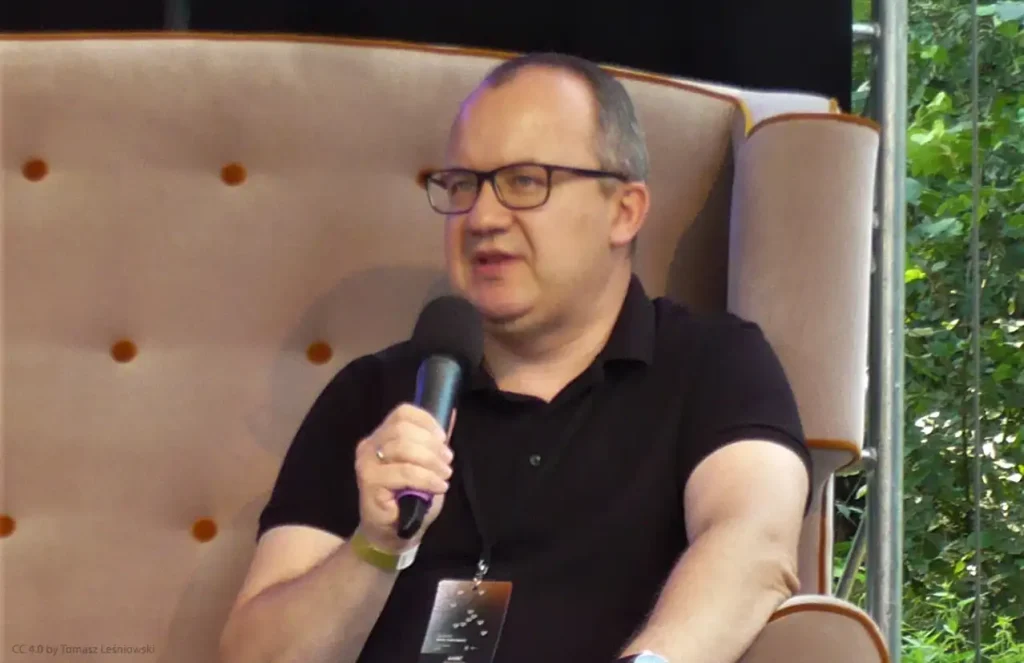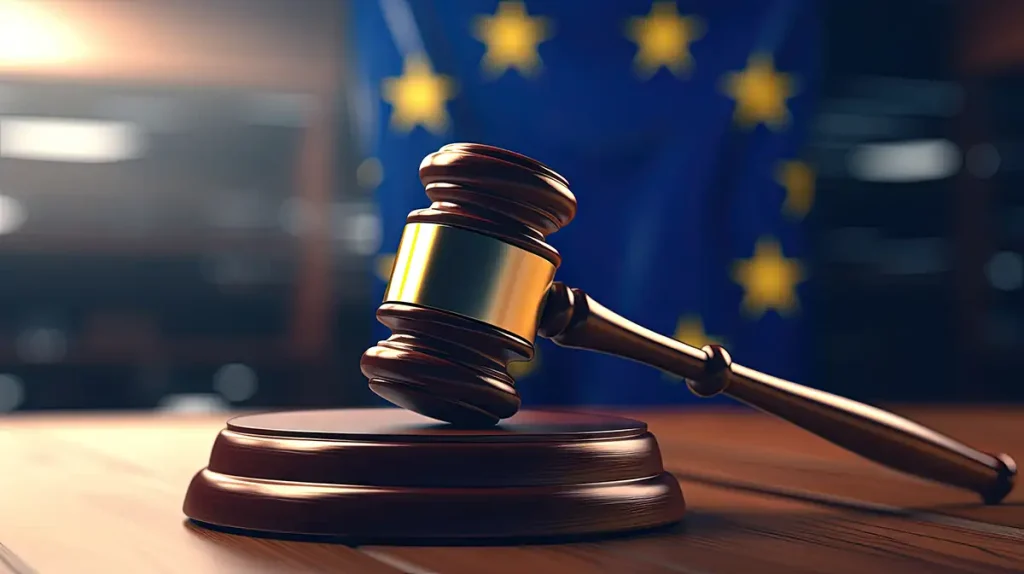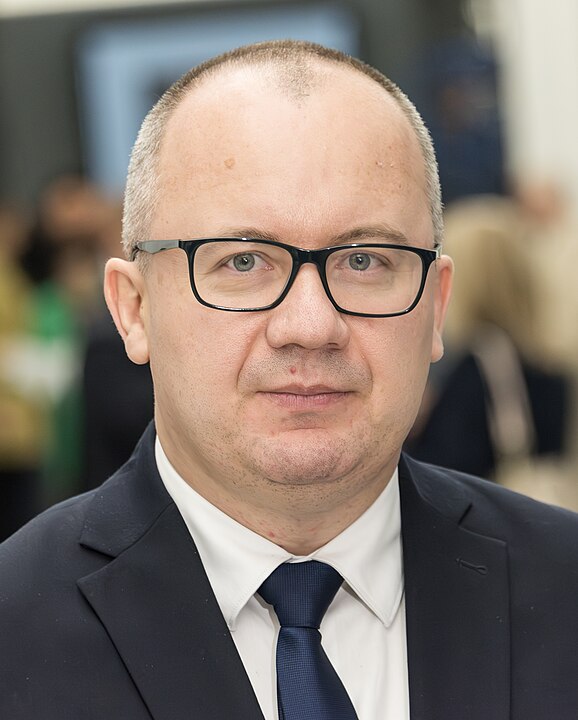“Ignorance of the law (on prosecution) harms”, or how Adam Bodnar, by his own actions deprived himself of his mandate of a senator of the Republic of Poland by attempting to “arrest” the files of prosecution cases concerning public media companies, which is confirmed not only by the current Deputy Minister of Justice Arkadiusz Myrcha, MP Kamila Gasiuk-Pihowicz or editor Renata Grochal, but also by Adam Bodnar himself.
According to media reports, it appears that the Minister of Justice – Prosecutor General, pursuant to art. 9 par. 2 of the Act of 28 January 2016. – Law on the Public Prosecutor’s Office (“LPPO”), attempted to take over from other prosecutors the handling of cases that concerned legally questionable ‘media resolutions’. In these cases, the prosecutors were able to take actions leading to, for example, the declaration by the court that Bartłomiej Sienkiewicz’s resolutions are null and void.
This attempt, however, had very far-reaching consequences for Adam Bodnar, which the Minister probably did not foresee. For in their effect he lost the ability to hold the office of a senator of the Republic of Poland.
According to art. 9 par. 2 of the Act LPPO, a superior prosecutor may take over cases conducted by subordinate prosecutors and perform their activities. This type of regulation makes it possible to take over cases conducted in a prosecutor’s office of a lower level (e.g., a murder case is transferred from the District Prosecutor’s Office to the Regional Prosecutor’s Office due to the importance of the case).
However, what is permissible for an ‘ordinary’ prosecutor, is not permissible for the Minister of Justice – the Prosecutor General, because the latter – as an active politician – has very limited competences under the Law (it is not without reason, after all, that there is a National Prosecutor alongside to the Prosecutor General). This was apparently known by Zbigniew Ziobro, Adam Bodnar’s predecessor, who never took over any case for personal handling (or at least the media did not report it). He always stopped at ‘instructions’.
The Lex Super Omnia prosecutors’ association, in its opinion of 13 July 2023 on the draft law (Senate print 1039), shared this opinion:
“Hence, the provision of the proposed Article 13a of the Law on the Public Prosecutor’s Office, which excludes the possibility of the Prosecutor General applying the principle of substitution, is erroneous, because the Prosecutor General, not being a superior prosecutor, cannot take over cases and tasks on the basis of Article 9 § 2 of the Law on the Public Prosecutor’s Office anyway.”
Prosecutor Dr Piotr Turek, an expert on the issue, shares the same opinion in his commentary:
“The procedural powers of the Prosecutor General and other prosecutors are separated, and it cannot be inferred from Article 3 § 1 of the Prosecution Law that the Prosecutor General could exercise powers which under special laws belong to the competence of the prosecutor, e.g., conduct investigations. And vice versa”.
Therefore, since Adam Bodnar decided to step into the role of a prosecutor and take over the conduct of a case, he unfortunately ceased to be a senator. According to Article 103(2) in conjunction with Article 108 of the Polish Constitution, the office of a prosecutor and that of a senator or MP cannot be combined.
This is also confirmed by the words of MP Kamila Gasiuk-Pihowicz:
“The separation of the roles of MP [and specifically a senator in this case] and prosecutor is intended to protect the prosecutor’s office from being politicized. We know that now, in view of the P’s omnipotence, these are not sufficient measures, but this does not mean that we can tolerate violations of the Constitution by the most important people in the state.”
Her opinion was echoed by Deputy Justice Minister Arkadiusz Myrcha:
“… the Law on the Public Prosecutor’s Office, which was adopted by the Law and Justice party, gives hitherto unknown powers to the Prosecutor General, who has become in a real way a public prosecutor within the framework of the functioning of the Polish public prosecutor’s office (…) This only confirms that the performance of the PG function is not of an extraordinary nature as it was known in the history of the Polish system”.
One can also quote from Renata Grochal’s rather one-sided book “Zbigniew Ziobro. The true face” (“Zbigniew Ziobro, Prawdziwe oblicze”) (Warsaw 2022, pp. 310-311):
“Ziobro is no longer just a minister, but also a Prosecutor General with significantly expanded competences and an MP. Combining an MP’s mandate with the function of prosecutor is a blatant violation of the constitution by some of the highest state functionaries.”
What is most interesting, however, is that the current Minister of Justice – Prosecutor General, while still in his capacity as Ombudsman declared unconstitutional the solutions in the 2016 Act. – Law on the Public Prosecutor’s Office, which he is now so keen to apply.
On 18 April 2016, Adam Bodnar submitted a request to the Constitutional Tribunal to declare unconstitutional, inter alia:
– the possibility for the Prosecutor General to issue instructions;
– the possibility of the Prosecutor General issuing decisions that overturned or amended the decisions of a subordinate prosecutor;
– the possibility for the Prosecutor General to take over the cases of subordinate prosecutors.
According to the then Ombudsman, this was incompatible with the principle of citizens’ trust in the state.
Nevertheless, Minister Adam Bodnar can preserve his senatorial mandate. All he needs to do is resign from the office of Minister of Justice – Prosecutor General.



